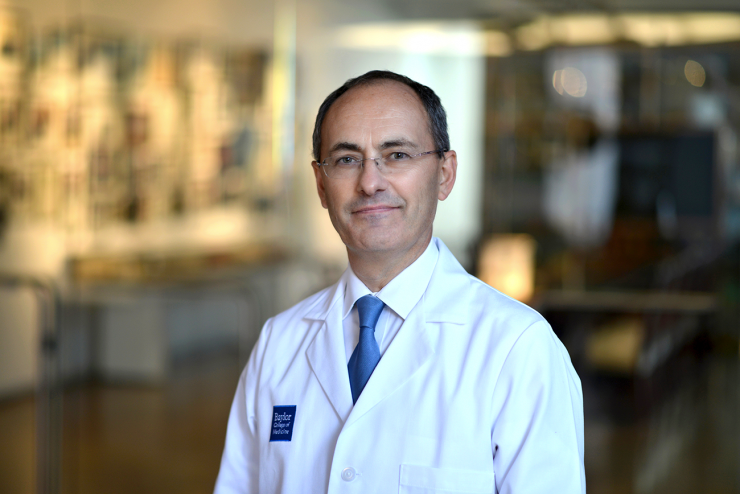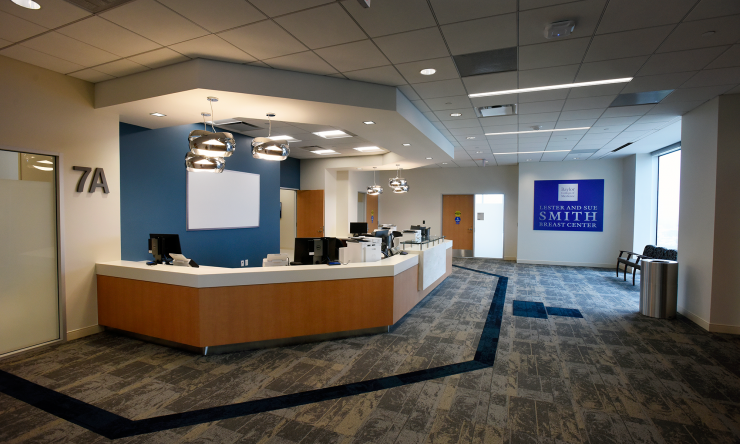New guidance finds best treatment for breast cancer during pandemic
A new approach to better select breast cancer patients in need of urgent surgery or chemotherapy during the COVID-19 pandemic has been developed by researchers in the U.K., Germany and U.S.
The innovative algorithm, using data from multiple international trials, can identify postmenopausal patients with primary ER+HER2- breast cancer who have either less endocrine-sensitive tumors and who should be prioritized for early surgery or neoadjuvant chemotherapy, or an endocrine-sensitive tumor that can be treated for up to 6 months with an endocrine drug with a safe surgical delay.
The COVID-19 pandemic has led to an international need to prioritize the number of cancer surgeries and chemotherapy treatments to the most urgent patients to protect staff and vulnerable patients. While patients diagnosed with triple negative breast and HER2-positive cancer have still been going forward for urgent surgery or chemotherapy, it is safe for a large group of patients to defer these treatments and treat with neoadjuvant endocrine therapy (NeoET) instead. Researchers have identified this method to reduce the stimulation of the disease by estrogen without the surgical removal of the breast tumour as the best course of treatment.

Dr. Matthew Ellis, professor and director of the Lester and Sue Breast Center at Baylor College of Medicine was a key collaborator on the study published in NPJ Breast Cancer this week. The work highlighted that while 85 percent of patients can defer surgery and are safe to remain on NeoET treatment for up to six months, 15 percent of patients are resistant to this treatment and risk disease spread and tumor progession with delayed surgery. Ellis led the Alliance for Clinical Trials in Oncology Z1031 study that provided key data.
“NeoET jumped from being an esoteric, occasionally used option to the predominant standard of care within one month of the COVID-19 epidemic curtailing surgical access,” said Ellis, a McNair Scholar and Susan G. Komen Scholar at Baylor. “We wanted to be sure that those unfamiliar with the approach could have a data-driven algorithm to apply so this useful approach could be used wisely.”
“By accessing unpublished results from clinical trials involving thousands of patients, we have developed a new way of directing patient treatment in this global crisis,” said Dr. Mitch Dowsett, professor and head of the Ralph Lauren Centre for Breast Cancer Research at the Royal Marsden in London and corresponding author of the study. “Using the data on tumor estrogen receptor, progesterone receptor and proliferation status in newly diagnosed patients, our simple calculator can be used by fellow clinicians worldwide to immediately identify the best course of treatment for about 80 percent of their patients.”
Researchers also found that they could identify women who were at risk for loss of disease control by measuring Ki67, a protein that measures the number of cells dividing in the tumor, a few weeks after the start of NeoET. Those women, about 20 percent of the patients, were recommended surgery or neoadjuvant chemotherapy.
“It is a real testament to the rapid collaboration of researchers globally to help ensure breast cancer patients can get the best possible care while minimizing the risks to them at this time,” said Dr. Peter Barry, consultant breast surgeon at the Royal Marsden and study collaborator.










